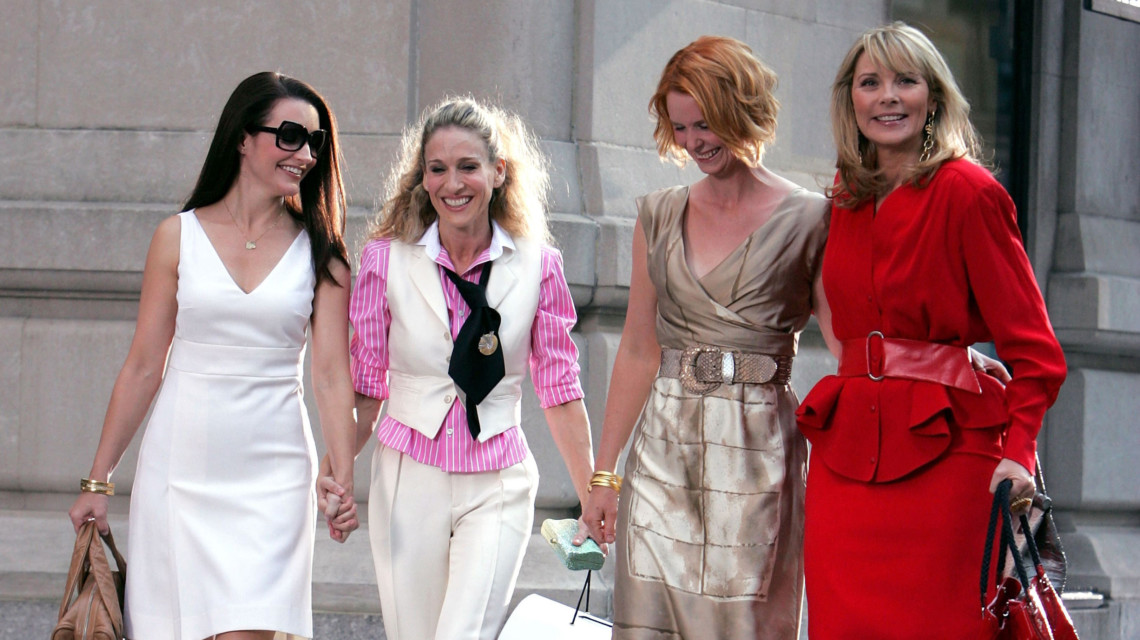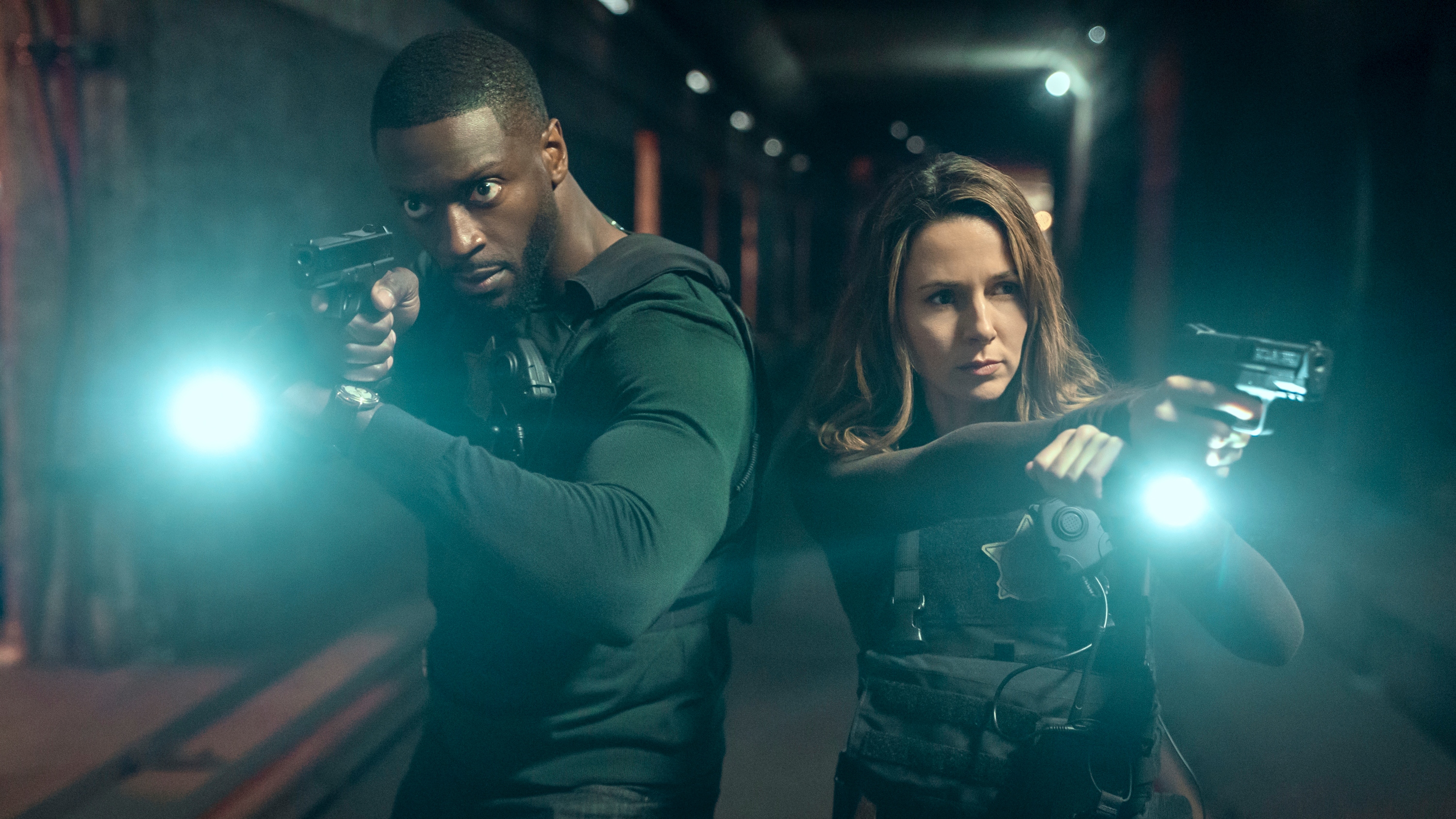Should ‘Sex and the City’ really return?
We really don't need a new season of 'Sex and the City.'

The latest updates, reviews and unmissable series to watch and more!
You are now subscribed
Your newsletter sign-up was successful
Want to add more newsletters?

ONCE A WEEK
What to Watch
Get all the latest TV news and movie reviews, streaming recommendations and exclusive interviews sent directly to your inbox each week in a newsletter put together by our experts just for you.

ONCE A WEEK
What to Watch Soapbox
Sign up to our new soap newsletter to get all the latest news, spoilers and gossip from the biggest US soaps sent straight to your inbox… so you never miss a moment of the drama!
Sex and the City will return with a limited 10-episode run.
HBO Max has, like most of the current glut of streaming services fighting for audiences’ subscription bucks, leaned in heavily with reboots of its beloved film and television properties. Now joining that increasingly crowded field is Sex and the City. The wildly beloved HBO comedy-drama will return with ten half-hour episodes under the miniseries banner of And Just Like That... While most of the central cast is returning, Kim Cattrall will not, having distanced herself from the show and her former colleagues many times over the years.
There’s some logic behind the decision to bring Carrie Bradshaw and her liberated New Yorker friends back to TV. The series helped to pave the way for so much on the small screen, particularly when it came to the depiction of female pleasure and freedom in the modern age. The cast candidly talked about sex, masturbation, cheating, Rampant Rabbits, abortion, menopause, infertility, and much more, freely looking various taboos in the face and laughing with a perfectly timed quip. Why not look back on these women now that they’re in their 50s, living under an era of political contrasts that sees women talking louder than ever about systemic misogyny all while the conservative political movement tries to restrict reproductive rights? It’s still rare to see older women in pop culture have these conversations and it would certainly be a natural extension of Carrie and company’s lives.
But, let’s be honest, the moment for a Sex and the City reboot came and went, and bringing it back now feels wholly unnecessary, not to mention a potential disaster.
The show already received two films, a teen-focused prequel focused on young Carrie’s life, and even a Brazilian remake. Even the most die-hard Sex and the City fans can’t deny that the two movie sequels were, to put it mildly, a disappointment. The first film, released in 2008 with a worldwide gross of $415 million to its name, seemed to work overtime to undo all the things that made the season finale so satisfying. Stretched out over an excruciatingly long 145 minutes (all of which felt totally unstructured and meandering), the film forced the central quartet into contrived situations that felt antithetical to the years-long journey of character development they'd undertaken on HBO. The forced drama either went totally against what the fans knew of these people - Steve cheating on Miranda, Big's about-turn over his wedding to Carrie - or turned them into caricatures of themselves, as seem by Charlotte becoming a gurning prude with Stepford Wife inclinations. By the time the film ended, it felt like nothing of importance had happened and King had smacked the Reset button, rendering the entire journey pointless.
The second film was even worse, adding a hefty dose of racism and Islamophobia to the equation as the women took an obscenely expensive trip to Abu Dhabi, cracked “Lawrence of my labia” jokes, and reduced the lives and faith of Middle Eastern women to jokes or learning opportunities for the white Americans. One infamous scene saw Samantha yelling to a group of Muslim men about her sexual empowerment, a moment that is slanted as liberating for them and the assumed white woman viewer but lands with an embarrassing thud. On top of that, the women had fully lost ant semblance of prickly humanity that made them so lovable on the small screen. The story of Carrie, Samantha, Miranda, and Charlotte had become everything that the show's arrogant detractors claimed it was, and King and company only had themselves to blame.
Sex and the City was ahead of its time but in many ways it’s still a product of it. Watching old episodes is a potent reminder of how far we still had to come on many issues. There’s a seriously nasty streak of biphobia throughout the show. Some of the language used to described trans characters and sex workers is questionable and also goes against the grain of the show's supposedly progressive nature. The series is also infamously lacking in diversity, painting New York City as an almost exclusively white place despite centuries of evidence to the contrary. The show's legacy is what it is, and it did so many things right, but the things it did badly never truly changed, even in the movies. A lot of this could be justified as being a representation of the narrow scope of womanhood offered by Carrie, the narrator and main character, but that only further emphasizes how messy bringing them back for a 2021 update could be.
The latest updates, reviews and unmissable series to watch and more!
Doing a Sex and the City show without Samantha also seems to miss the point. The four women represented different ideas of feminism and liberation, with Samantha Jones standing as the proudly dominating seductress, a woman who prized her own pleasure above all else and refused to apologize for it. She could often be blunt, selfish, and unconcerned with tact, but she was pivotal to the balance of the series. While her friends worried about selling themselves short in favor of men, Samantha made no such compromises, and frequently pushed back against their old-fashioned woes. By the end of the show, she had found a man who adored her and for whom she was willing to settle down, but never in a way that tamed her inherent power (another reason the movies sucked – they broke up Samantha and Smith!)
Cattrall explained in 2016 that she was done playing Samantha and would be happy if another actress played the part, especially if she was a woman of color. It would be a smart way to keep the balance for the reboot, but what story is left to tell? These women had their happy ending, and not even two terrible movies could taint that.
Sex and the City helped to lay the groundwork for a slew of women-centric, taboo-breaking, and unashamedly challenging shows. Look at the current landscape of television, from Issa Rae’s Insecure to Starz’s sex-worker centered P-Valley to the romance adaptation Bridgerton, all of which tackle themes of sex, womanhood, and power in unique ways. A 2021 Sex and the City has to tackle its contemporary reality, which includes #MeToo, Black Lives Matter, the growing movement for sex worker rights, and the crushing restrictions of the Trump administration on women's autonomy. This is a point in time where we see conversations on asexuality, polyamorous relationships, and gender fluidity being taken seriously, and not used as cheap punchlines like Sex and the City so often reduced them to. Can that show exist when it’s focused once again on Carrie Bradshaw? Should it? I couldn’t help but think that maybe it’s OK for endings to stay in place, and for new narratives to get their moment in the sun independent of the past.
Kayleigh is a pop culture writer and critic based in Dundee, Scotland. Her work can be found on Pajiba, IGN, Uproxx, RogerEbert.com, SlashFilm, and WhatToWatch, among other places. She's also the creator of the newsletter The Gossip Reading Club.


